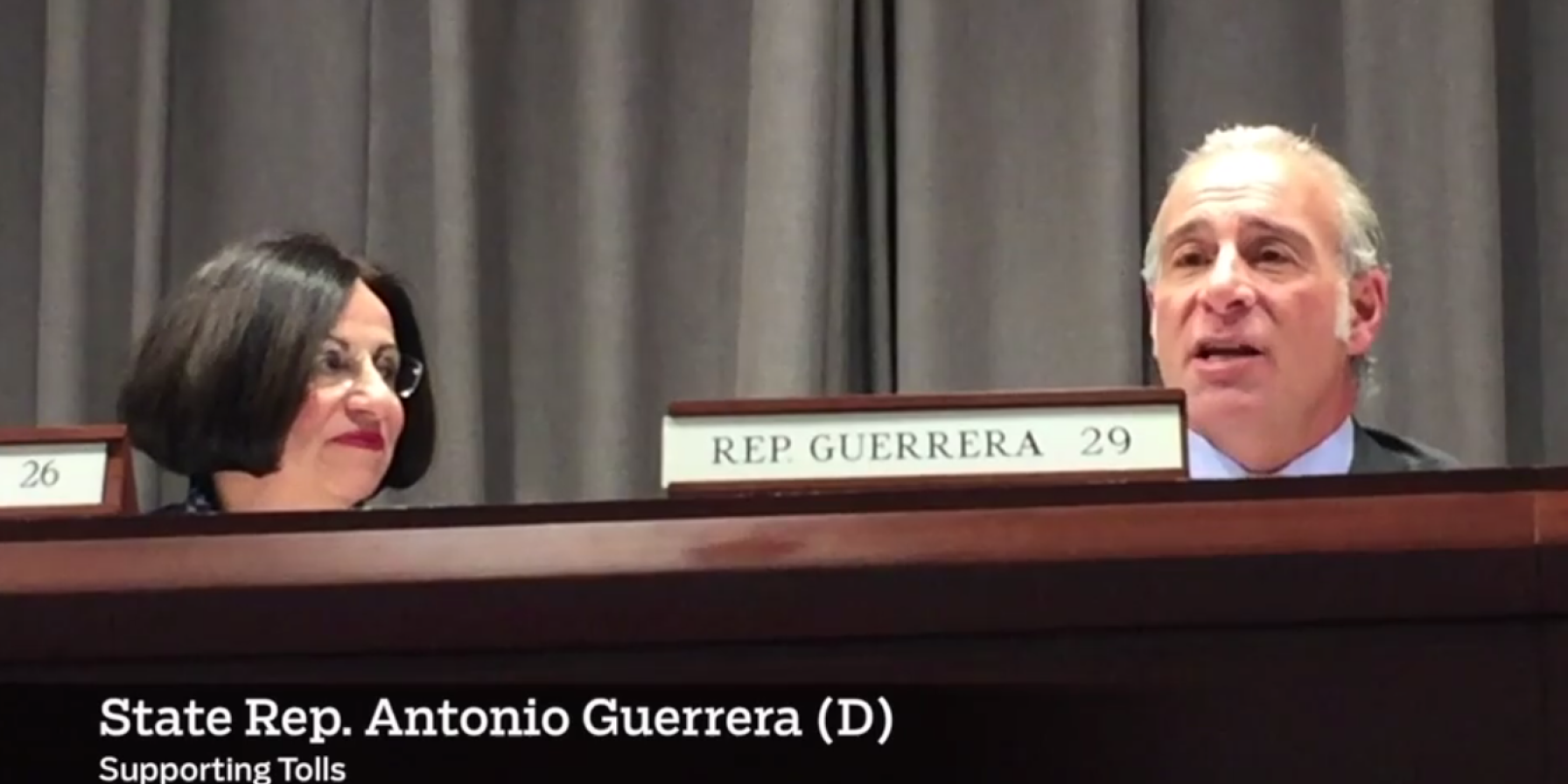- Home
- IBTTA Insights
- Connecticut Tolling Discussion Probes Infrastructure Funding Gap
Stories
Connecticut Tolling Discussion Probes Infrastructure Funding Gap


Sometimes, all it takes is one smart, heroic intervention by one good citizen to shift the debate on a matter of burning importance to everyone.
It’s rarely that simple when a state is deciding on a tolling program, and it’s not quite what happened when the Connecticut legislature met late last month to consider its options for clearing its highway infrastructure funding deficit.
But the news coverage in the Hartford Courant still emphasized the comments from one local resident, retired West Hartford dentist Bob Hall, who went to the trouble of attending a meeting of the state General Assembly’s transportation committee to voice his support for tolling.
And did a good job of advancing the debate. Just by showing up.
"Is this going to be popular? Of course not," Hall told committee members. "But Massachusetts, Maine, New Hampshire, New York, New Jersey, Delaware, Maine — they all have toll roads."
And he batted away the notion that a toll is a hidden tax. "I consider this a user fee," he said. "I'm concerned the money is running out and we can't maintain our infrastructure."
A Mounting Infrastructure Deficit
Connecticut hasn’t charged highway tolls in more than two decades, and the Courant sums up the result in a single lead sentence. “Highways in Hartford and Waterbury need hugely expensive maintenance, transit users are tired of steadily rising fares, and Fairfield County drivers want relief from ever-worsening traffic congestion,” the paper states, based on the arguments put forward during the marathon, five-hour committee hearing.
While the push to reinstate tolls was looking like an uphill slog late last month, there was hope on the horizon, after the state budget office warned that Connecticut’s special transportation fund was about three years away from running dry.
"The sins of our fathers are catching up to us,” said Rep. Tom O'Dea (R-New Cannan). “We keep kicking the can down the road," and “the only people paying the gas tax are Connecticut residents,” as opposed to out-of-state drivers who use the roads and pass through without stopping to fuel up.
Then last week, the American Society of Civil Engineers published its 2017 Infrastructure Report Card, with up-to-date data that drills down to every state. It reinforces the reality that Connecticut, like every other state in the union, has a long way to go to clear its infrastructure deficit: despite $280 million in capital investment since 2013, 338 of the state’s 4,214 bridges are still structurally deficient, and the average driver pays an extra $864 per year “from driving on roads in need of repair”.
“Success in a 21st century economy requires serious, sustained leadership on infrastructure investment at all levels of government,” ASCE states. “Delaying these investments only escalates the cost and risks of an aging infrastructure system, an option that the country, Connecticut, and families can no longer afford.”
A New Approach for Connecticut
When IBTTA Executive Director and CEO testified before the state transportation committee in February 2015, he stressed that today’s tolling systems have moved light years beyond the ones the state remembers from decades past.
“We can very definitely assure you that the practice and technology of toll collection has advanced significantly in the last 30 years and no longer requires physical toll plazas, barriers or toll collectors, eliminating traffic queues and their related safety and delay issues,” Jones told the legislators.
While road pricing isn’t right for every road, he added, tolling “offers an option, subject to local opinions and authority, which doesn’t rely on other funding sources to build, operate or maintain vital transportation infrastructure.”
Two years later, it’s good to see people in Connecticut focusing on the opportunity costs they incur as the decision on tolling and highway funding runs its course. Legislators and citizens should take their time to arrive at the mix of funding strategies that suits their own jurisdiction, but it’s good to bear in mind that a decision delayed carries costs of its own. As they determine the right place for tolling, there’s an industry out there that stands ready to lend a hand.
Not your grandparents’ toll road: Check out the session descriptions for IBTTA’s Symposium on AET and Managed Lanes, co-hosted with the U.S. Transportation Research Board, July 16-18, 2017 in Dallas, Texas.
Photo via the Hartford Courant.

Joining IBTTA connects you to a global community of transportation professionals, offering unmatched opportunities for networking, knowledge-sharing, and collaborative innovation in the tolling and transportation sector.
Follow IBTTA on social media for real-time updates on transportation trends and collaborative opportunities.





